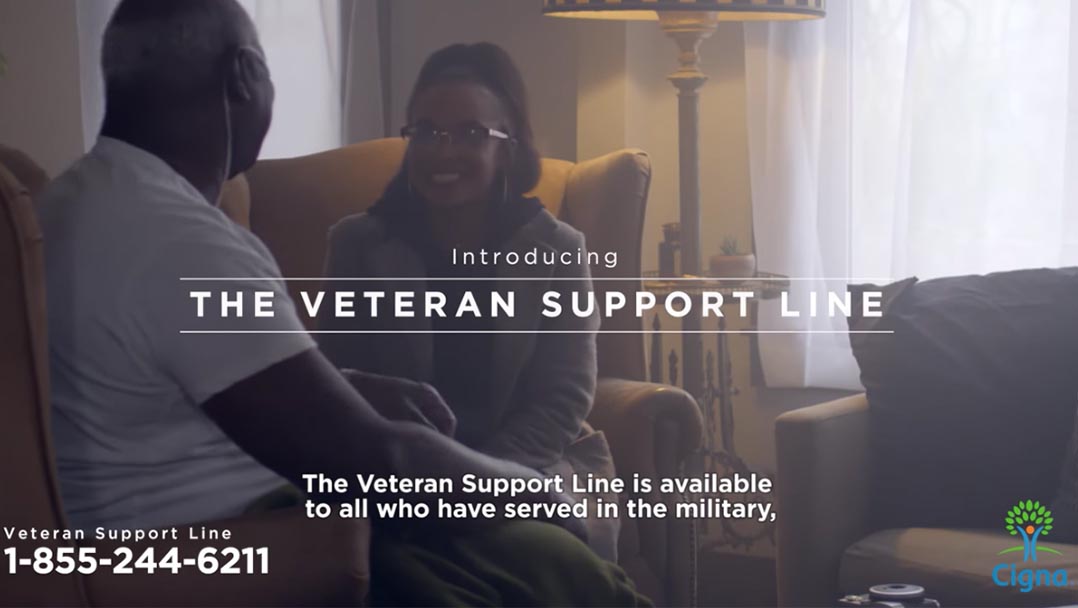Returning home from an overseas deployment brings a host of challenges, and many veterans need mental well-being support to transition back to civilian life.

Returning home from an overseas deployment brings a host of challenges, and many veterans need mental well-being support to transition back to civilian life. But according to the Substance Abuse and Mental Health Services Administration, only about half of returning service members needing that level of help seek treatment.1
Of the veterans who do reach out to medical professionals, just over half receive effective or helpful care.1
Cigna stepped up to do its part to help service members by launching the Veteran Support Line. A toll-free number 1 (855) 244-6211 - is available 24/7/365 days a year for veterans and their families - regardless of whether or not they are a Cigna customer.
”America’s veterans made many sacrifices for us and put their lives on the line to secure our freedom,“ said Karen Cierzan, Vice President of Clinical Operations for Cigna’s behavioral health business. ”Now it’s our responsibility to help them achieve the security they’re seeking in their own lives.“
Studies show that veterans face a range of challenges and often struggle with chronic pain, post-traumatic stress disorder (PTSD), depression, and other health conditions. Nearly 20% of returning service members from Afghanistan or Iraq have suffered a traumatic brain injury,1 while approximately 19% suffer from PTSD or depression.1
The Veteran Support Line was created to help service members through those issues, in addition to providing guidance on services and resources for pain management, substance use counseling and treatment, financial issues, food, clothing, housing, safety, transportation, parenting and child care, aging services, health insurance, legal assistance, and more.
Cigna’s work also includes alternative therapies, like a weekly Mindfulness for Vets session every Tuesday at 5:00 pm Eastern time (1 (866) 205-5379, passcode 113 29 178). Mindfulness is an evidence-based therapy proven to have a positive impact on depression, stress, anxiety, performance, sleep, addiction, PTSD, and more. A mindfulness group designed exclusively for veterans, this session is meant to be “interactional, instructional, and experiential,” Cierzan said. At the end of the group session, if a participant would like to talk further with a coach, a direct number will be provided.
“These groups are designed to offer a space where people can practice mindfulness, so there is no sharing of personal information during these groups,” Cierzan said. “Each session will provide a simple introduction to basic relaxation and mindfulness practice and is suitable for anyone at any level of experience with mindfulness. The remainder of the session is a rotation of techniques, such as breath work, progressive muscle relaxation, guided visualization, positive affirmation, attention, and compassion exercises. The group will wrap up with tips for continuing personal practice and group discussion about applying these skills to daily life.”
Cigna’s commitment to veterans goes beyond the Veteran Support Line. In July 2017, the Cigna Foundation gave a $300,000 grant to the Iraq and Afghanistan Veterans of America to help expand its Rapid Response Referral Program, a community effort to help veterans meet their life goals through connections to education, medical and legal resources and benefits. In January 2018, Cigna was designated as a Military Friendly® Employer by Victory Media.
1 Veterans and Military Families, Substance Abuse and Mental Health Services Administration, September 2017, Veterans and Military Families